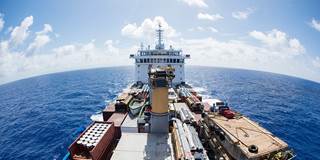OnPoint Subscriber Exclusive
Longer Reads provide in-depth analysis of the ideas and forces shaping politics, economics, international affairs, and more.

The Future of Trade
The past year’s populist resurgence has brought to the fore ongoing debates about trade and underscored public concerns about internationalism. Can the mechanisms of globalization that shaped the twentieth-century world economy be salvaged to continue delivering prosperity in the coming decades?
WATERLOO, CANADA – With ample prodding from US President Donald Trump and other populist demagogues, public angst about globalization has become one of the defining issues of our time. Indeed, out of all of globalization’s many manifestations, populists have singled out international trade agreements for special criticism. To hear Trump tell it, “horrible” trade deals are to blame for almost everything that is wrong in the world today.